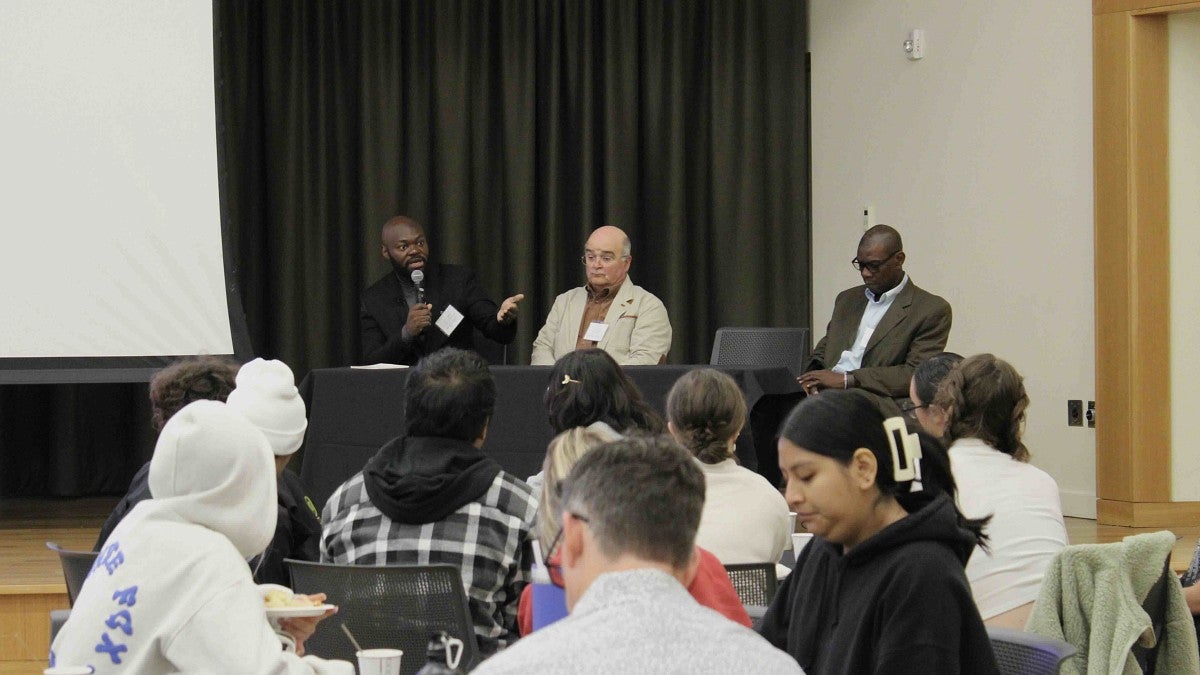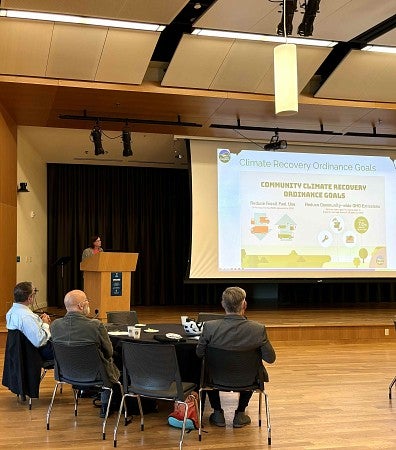
Oct. 31, 2024 - 12:00pm
Although many scientists agree about the natural effects of climate change, solutions on a global scale are still scarce.
A new annual conference organized by the Schnitzer School of Global Studies and Languages at the University of Oregon College of Arts and Sciences brought together students, academics and policymakers to discuss big topics, starting with climate change.
From Oct. 17 to 19, the Global Studies and Languages hosted its first-ever conference. Titled “Climate Clashes, Climate Governance, Climate Justice,” the inaugural conference’s theme focused on interdisciplinary approaches to climate change and resolution. The conference brought together local and global academics who focus on different specific aspects of climate change.
“There’s a clear scientific consensus, yet we are still struggling globally,” said Aneesh Aneesh, executive director of the Schnitzer School of Global Studies and Languages and one of the organizers of the event.

The conference had seven panels, each focusing on a different topic, ranging from social inequity and media communications to agricultural and ecological processes affected by climate change.
“I appreciated that there were panelists who specialized in different fields related to climate change, not just the scientific aspect of it, so that students from all majors had some sort of connection to what the panels were about,” said Corey Hoffman, a student in the Global Engagement Academic Residential Community.
Many UO students attended the conference, primarily those from the Global Engagement ARC, a living community within the resident halls that focuses on global issues such as migration, diplomacy, culture and many more. Organizers prioritized student engagement when planning the conference, focusing more on conversation than academics.
“We want student participation,” Aneesh said. “We don’t want the conference to be just research and disciplinary talks.”
“Not only are students learning about topics that are relevant, interesting, and important, but they are also learning from experts in specific fields from all over the world,” Hoffman said. “The Q&A after panels allows students to directly interact with panelists to ask specific questions.”
Along with academics discussing their research, local representatives from Eugene presented their work at the conference. Eugene Mayor Lucy Vinis and Sustainability Manager Ian Penn highlighted the City’s Climate Action Plan and efforts to make Eugene greener, and Beyond Toxics Executive Director Lisa Arkin highlighted her group's goals and achievements. This final panel contributed to the “global is local” attitude of the conference, considering global issues on a smaller scale.
The conference concluded Saturday, Oct. 19 with remarks from Aneesh, who highlighted how the different contributions of speakers impacted the larger conversation of climate change.
“We saw through the panels how different narratives and counter-narratives are colliding in the global public sphere," Aneesh said.
—By Grace Connolly, College of Arts and Sciences
